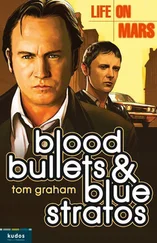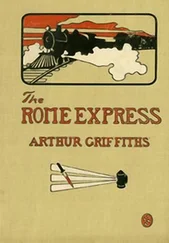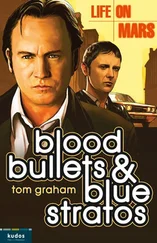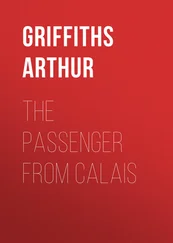Arthur Griffiths - The Thin Red Line; and Blue Blood
Здесь есть возможность читать онлайн «Arthur Griffiths - The Thin Red Line; and Blue Blood» — ознакомительный отрывок электронной книги совершенно бесплатно, а после прочтения отрывка купить полную версию. В некоторых случаях можно слушать аудио, скачать через торрент в формате fb2 и присутствует краткое содержание. Жанр: foreign_prose, foreign_antique, на английском языке. Описание произведения, (предисловие) а так же отзывы посетителей доступны на портале библиотеки ЛибКат.
- Название:The Thin Red Line; and Blue Blood
- Автор:
- Жанр:
- Год:неизвестен
- ISBN:нет данных
- Рейтинг книги:5 / 5. Голосов: 1
-
Избранное:Добавить в избранное
- Отзывы:
-
Ваша оценка:
- 100
- 1
- 2
- 3
- 4
- 5
The Thin Red Line; and Blue Blood: краткое содержание, описание и аннотация
Предлагаем к чтению аннотацию, описание, краткое содержание или предисловие (зависит от того, что написал сам автор книги «The Thin Red Line; and Blue Blood»). Если вы не нашли необходимую информацию о книге — напишите в комментариях, мы постараемся отыскать её.
The Thin Red Line; and Blue Blood — читать онлайн ознакомительный отрывок
Ниже представлен текст книги, разбитый по страницам. Система сохранения места последней прочитанной страницы, позволяет с удобством читать онлайн бесплатно книгу «The Thin Red Line; and Blue Blood», без необходимости каждый раз заново искать на чём Вы остановились. Поставьте закладку, и сможете в любой момент перейти на страницу, на которой закончили чтение.
Интервал:
Закладка:
Arthur Griffiths
The Thin Red Line; and Blue Blood
THE THIN RED LINE
VOLUME I
CHAPTER I.
THE COMMISSARY IS CALLED
In the Paris of the first half of this century there was no darker, dingier, or more forbidding quarter than that which lay north of the Rue de Rivoli, round about the great central market, commonly called the Halles.
The worst part of it, perhaps, was the Rue Assiette d'Etain, or Tinplate Street. All day evil-looking loafers lounged about its doorways, nodding lazily to the passing workmen, who, blue-bloused, with silk cap on head, each with his loa under his arm, came to take their meals at the wine-shop at the corner; or gossiping with the porters, male and female, while the one followed closely his usual trade as a cobbler, and the other attended to her soup.
By day there was little traffic. Occasionally a long dray, on a gigantic pair of wheels, drawn by a long string of white Normandy horses in single file, with blue harness and jangling bells, filled up the roadway. Costermongers trundled their barrows along with strange, unmusical cries. Now and again an empty cab returning to its stable, with weary horse and semi-somnolent coachman, crawled through the street.
But at night it was otherwise. Many vehicles came dashing down Tinplate Street: carriages, public and private, of every variety, from the rattletrap cab hired off the stand, or the decent coach from the livery stable, to the smart spick-and-span brougham, with its well-appointed horses and servants in neat livery. They all set down at the same door, and took up from it at any hour between midnight and dawn, waiting patiently in file in the wide street round the corner, till the summons came as each carriage was required.
As seen in the daytime, there was nothing strange about the door, or the house to which it gave access. The place purported to be an hotel—a seedy, out-at-elbows, seemingly little-frequented hotel, rejoicing in the altogether inappropriate name of the Hôtel Paradis, or the Paradise Hotel. Its outward appearance was calculated to repel rather than invite customers; no one would be likely to lodge there who could go elsewhere. It had habitually a deserted look, with all its blinds and casements close shut, as though its lodgers slept through the day, or had gone away, never to return.
But this was only by day. At night the street-door stood wide open, and a porter was on duty at the foot of the staircase within. He was on the inner side of a stout oaken door, in which was a small window, opening with a trap. Through this he reconnoitred all arrivals, taking stock of their appearance, and only giving admission when satisfied as to what he saw.
The Hôtel Paradis, in plain English, was a gambling-house, largely patronised, yet with an evil reputation. It was well known to, and constantly watched by, the police, who were always at hand, although they seldom interfered with the hotel.
But when the porter's wife came shrieking into the street early one summer's morning, with wildest terror depicted in her face, and shaking like a jelly, the police felt bound to come to the front.
"Has madame seen a ghost?" asked a stern official in a cocked hat and sword, accosting her abruptly.
"No, no! Fetch the commissary, quick! A crime has been committed—a terrible crime!" she gasped.
This was business, and the police-officer knew what he had to do.
"Run, Jules," he said to a colleague. "You know where M. Bontoux lives. Tell him he is wanted at the Hôtel Paradis." Then, turning to the woman, he said, "Now, madame, explain yourself."
"It is a murder, I am afraid. A gentleman has been stabbed."
"What gentleman? Where?"
"In the drawing-room, upstairs. I don't know his name, but he came here frequently. My husband will perhaps be able to tell you; he is there."
"Lead on," said the police-officer; "take me to the place. I will see to it myself."
They passed into the hotel through the inner portal, and up the stairs to the first floor, where the principal rooms were situated—three of them furnished and decorated magnificently, altogether out of keeping with the miserable exterior of the house, having enormous mirrors from ceiling to floor, gilt cornices, damask hangings, marble console tables, and chairs and sofas in marqueterie and buhl. The first room evidently served for reception; there was a sideboard in one corner, on which were the remains of a succulent repast, and dozens of empty bottles. The second and third rooms were more especially devoted to the business of the establishment. Long tables, covered with green cloth, filled up the centre of each, and were strewed with cards, dice and their boxes, croupier's rakes, and other implements of gaming.
The third room had been the scene of the crime. There upon the floor lay the body of a man, a well-dressed man, wearing the white kerseymere trousers, the light waistcoat, and long-tailed green coat which were then in vogue. His clothes were all spotted and bedrabbled with gore; his shirt was torn open, and plainly revealed the great gaping wound from which his life's blood was quickly ebbing away.
The wounded man's head rested on the knee of the night porter, a personage wearing a kind of livery, a strongly built, truculent-looking villain, whose duties, no doubt, comprised the putting of people out as well as the letting them into the house.
"Oh, Anatole! my cherished one!" began the porter's wife. "Here are the police. Tell us then, how this occurred."
"I will tell all I know," replied her husband, looking at the police-officer. "This morning, when the clients had nearly all gone, and I was sitting half asleep in the lodge, I heard—"
"Stop," said the police-officer, "not another word. Keep all you have to say for the commissary. He is already on the stairs."
The next minute M. Bontoux entered, accompanied by his clerk and the official doctor of the quarter.
"A crime," said the commissary, slowly, and with as much dignity as was possible in a middle-aged gentleman pulled from his bed at daybreak, and compelled to dress in a hurry. "A crime," he repeated. "Of that there can be no doubt. But let us establish the fact formally. Where are the witnesses?"
The porter, having relinquished the care of the wounded man to the doctor, stood up slowly and saluted the commissary.
"Very well; tell us what you know. Sit down"—this to the clerk. "Produce your writing-materials and prepare the report."
"It must have been about four this morning, but I was very drowsy, and the gentlemen had nearly all gone," said the night porter, speaking fluently, "when I was disturbed by the noise of a quarrel, a fight, up here in the principal drawing-room. While I was still rubbing my eyes, for I was very drowsy, and fancied I was dreaming, I heard a scream, a second, and a third, followed by a heavy fall on the floor. I rushed upstairs then, and found this poor gentleman as you see him."
"Alone?"
"Quite alone."
"But there must have been other people here. Did they come down the stairs past you?"
"No, sir; they must have escaped by that window. It was open—"
The commissary looked at the police-officer, who nodded intelligently.
"I had already noticed it, Mr. Commissary. The window gives upon a low roof, which communicates with the back street. Escape would be quite easy from that side."
"Well," said the commissary, "and you found this gentleman? Do you know him? His name? Have you ever seen him before?"
"He is M. le Baron d'Enot; he is a constant visitor at the house. Very fortunate, I believe, and I heard he won largely last night."
"Ah!" said the commissary. This fact was important, as affording a reason for the crime. "And do you suspect any one? Have you any idea who was here at the last?"
Читать дальшеИнтервал:
Закладка:
Похожие книги на «The Thin Red Line; and Blue Blood»
Представляем Вашему вниманию похожие книги на «The Thin Red Line; and Blue Blood» списком для выбора. Мы отобрали схожую по названию и смыслу литературу в надежде предоставить читателям больше вариантов отыскать новые, интересные, ещё непрочитанные произведения.
Обсуждение, отзывы о книге «The Thin Red Line; and Blue Blood» и просто собственные мнения читателей. Оставьте ваши комментарии, напишите, что Вы думаете о произведении, его смысле или главных героях. Укажите что конкретно понравилось, а что нет, и почему Вы так считаете.












